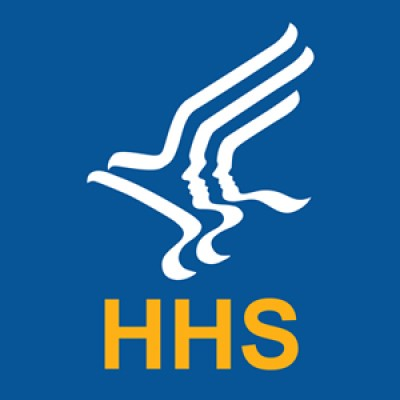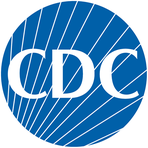Vaccine Panel Shifts Threaten US Public Health
September 19, 2025, 10:01 pm

Location: United States, District of Columbia, Washington
Employees: 10001+
Total raised: $56.52M

Location: United States, Illinois, Springfield
Employees: 501-1000
Founded date: 1970
Total raised: $3M

Location: United States, Georgia, Atlanta
Employees: 10001+
Founded date: 1946
A key government vaccine panel, hand-picked by Health Secretary Robert F. Kennedy Jr., prepares to overhaul U.S. immunization policy. Critical votes on Covid, hepatitis B, and MMRV vaccines are imminent. These shifts could severely limit public access, dismantle insurance coverage, and escalate risks of preventable disease outbreaks. Public health experts warn political influence threatens science-backed recommendations, imperiling decades of progress in disease prevention and public safety.
An influential government vaccine panel meets this week. Its decisions reshape immunization policy for millions. This body, the Advisory Committee on Immunization Practices (ACIP), operates under new leadership. Health and Human Services Secretary Robert F. Kennedy Jr. reconstituted the committee. New members include some prominent vaccine critics. Their votes could drastically alter national vaccine recommendations. These changes impact access, coverage, and disease prevention across the nation.
The panel considers recommendations for Covid-19 shots. They also review childhood immunizations for hepatitis B and MMRV (measles, mumps, rubella, and varicella). Public health experts express deep concern. Weakening these guidelines invites serious consequences. It could make critical vaccines harder to obtain. Insurance coverage may diminish. Declining immunization rates pose a real threat. Outbreaks of preventable diseases become more likely.
A primary focus is the hepatitis B vaccine. ACIP may delay the newborn dose until age four. Current policy recommends administration within 24 hours of birth. This longstanding guidance dates back to 1991. The birth dose has been a life-saving public health intervention. It dramatically reduced hepatitis B among American children. Infections among those under 19 plummeted. This success protects against severe health issues. These include liver cancer and liver failure.
Delaying this initial dose carries significant risks. A mother can transmit the infection to her baby during birth. Newborns face a higher risk of lifelong, incurable infection. Older children can contract the virus through everyday contact. Hepatitis B can survive on surfaces for days. Even microscopic traces of infected blood can pose a threat. This virus spreads beyond high-risk behaviors. Childhood settings like daycares or playgrounds can facilitate transmission. Experts assert universal vaccination prevents these cases. It safeguards the entire population.
The process for this proposed change raises flags. ACIP typically conducts thorough data analysis. This review precedes any recommendation changes. For the hepatitis B vaccine, this process appears absent. Former CDC officials report no work group convened. This constitutes an atypical situation. It suggests political influence over standard scientific deliberation.
Covid-19 vaccine policy also faces potential upheaval. The Food and Drug Administration (FDA) already limited recent approvals. New Covid jabs are recommended for those 65 and older. They also apply to younger adults with specific underlying conditions. This marks a departure from earlier universal recommendations. Some states now require prescriptions for Covid vaccines. This adds an access barrier.
The ACIP panel includes members hostile to mRNA vaccines. Concerns exist about data presented at meetings. One prior presentation included a fabricated citation. The claim linked Covid vaccines to pediatric deaths. This assertion lacks scientific backing. It relies on unverified reports from VAERS. Studies consistently show mRNA vaccines are safe and effective. Serious side effects are exceedingly rare.
Secretary Kennedy stated healthy individuals have no clinical need for Covid vaccines. Health experts counter this view. Healthy people can still suffer from long Covid. They can also transmit the virus to vulnerable contacts. Weakened recommendations would normalize unscientific policy decisions. It further confuses the American public.
Access to Covid vaccines could vary greatly by state. Some Democratic-led states proactively ensure access. They recommend vaccines for all adults and children. They also allow pharmacy administration without prescriptions. Republican-led states often maintain prescription requirements. Rural populations would suffer most. Access to doctors or pharmacies is limited in these areas.
Insurance coverage hangs in the balance. ACIP recommendations dictate what insurers must cover. If recommendations change, private insurers may stop coverage. Medicare and Medicaid mandates also depend on ACIP guidelines. The Vaccines for Children program offers free shots for eligible children. Changes could remove critical vaccines from this program. Families would face out-of-pocket costs. This creates an immediate financial burden.
The panel also eyes the MMRV vaccine. They may advise against the combined shot for young children. This product protects against measles, mumps, rubella, and varicella (chickenpox). Current CDC guidelines suggest separate doses for children ages one to two. The combined shot is optional for those four and older. The combination vaccine carries a slight risk of fever-induced seizures in young children. These seizures are temporary and cause no permanent harm.
Changes to MMRV policy could increase vaccine hesitancy. The U.S. already saw a record number of measles cases in 2025. This disease was once considered eliminated. Further weakening recommendations risks widespread outbreaks. It reverses decades of progress against childhood diseases.
The potential changes extend beyond specific vaccines. They undermine public trust in health institutions. They inject political agendas into science-based decisions. This erodes the foundation of effective public health. It threatens the health and safety of communities nationwide. The ACIP meeting represents a critical juncture. The future of American immunization policy is at stake. These decisions will impact generations to come.
An influential government vaccine panel meets this week. Its decisions reshape immunization policy for millions. This body, the Advisory Committee on Immunization Practices (ACIP), operates under new leadership. Health and Human Services Secretary Robert F. Kennedy Jr. reconstituted the committee. New members include some prominent vaccine critics. Their votes could drastically alter national vaccine recommendations. These changes impact access, coverage, and disease prevention across the nation.
The panel considers recommendations for Covid-19 shots. They also review childhood immunizations for hepatitis B and MMRV (measles, mumps, rubella, and varicella). Public health experts express deep concern. Weakening these guidelines invites serious consequences. It could make critical vaccines harder to obtain. Insurance coverage may diminish. Declining immunization rates pose a real threat. Outbreaks of preventable diseases become more likely.
A primary focus is the hepatitis B vaccine. ACIP may delay the newborn dose until age four. Current policy recommends administration within 24 hours of birth. This longstanding guidance dates back to 1991. The birth dose has been a life-saving public health intervention. It dramatically reduced hepatitis B among American children. Infections among those under 19 plummeted. This success protects against severe health issues. These include liver cancer and liver failure.
Delaying this initial dose carries significant risks. A mother can transmit the infection to her baby during birth. Newborns face a higher risk of lifelong, incurable infection. Older children can contract the virus through everyday contact. Hepatitis B can survive on surfaces for days. Even microscopic traces of infected blood can pose a threat. This virus spreads beyond high-risk behaviors. Childhood settings like daycares or playgrounds can facilitate transmission. Experts assert universal vaccination prevents these cases. It safeguards the entire population.
The process for this proposed change raises flags. ACIP typically conducts thorough data analysis. This review precedes any recommendation changes. For the hepatitis B vaccine, this process appears absent. Former CDC officials report no work group convened. This constitutes an atypical situation. It suggests political influence over standard scientific deliberation.
Covid-19 vaccine policy also faces potential upheaval. The Food and Drug Administration (FDA) already limited recent approvals. New Covid jabs are recommended for those 65 and older. They also apply to younger adults with specific underlying conditions. This marks a departure from earlier universal recommendations. Some states now require prescriptions for Covid vaccines. This adds an access barrier.
The ACIP panel includes members hostile to mRNA vaccines. Concerns exist about data presented at meetings. One prior presentation included a fabricated citation. The claim linked Covid vaccines to pediatric deaths. This assertion lacks scientific backing. It relies on unverified reports from VAERS. Studies consistently show mRNA vaccines are safe and effective. Serious side effects are exceedingly rare.
Secretary Kennedy stated healthy individuals have no clinical need for Covid vaccines. Health experts counter this view. Healthy people can still suffer from long Covid. They can also transmit the virus to vulnerable contacts. Weakened recommendations would normalize unscientific policy decisions. It further confuses the American public.
Access to Covid vaccines could vary greatly by state. Some Democratic-led states proactively ensure access. They recommend vaccines for all adults and children. They also allow pharmacy administration without prescriptions. Republican-led states often maintain prescription requirements. Rural populations would suffer most. Access to doctors or pharmacies is limited in these areas.
Insurance coverage hangs in the balance. ACIP recommendations dictate what insurers must cover. If recommendations change, private insurers may stop coverage. Medicare and Medicaid mandates also depend on ACIP guidelines. The Vaccines for Children program offers free shots for eligible children. Changes could remove critical vaccines from this program. Families would face out-of-pocket costs. This creates an immediate financial burden.
The panel also eyes the MMRV vaccine. They may advise against the combined shot for young children. This product protects against measles, mumps, rubella, and varicella (chickenpox). Current CDC guidelines suggest separate doses for children ages one to two. The combined shot is optional for those four and older. The combination vaccine carries a slight risk of fever-induced seizures in young children. These seizures are temporary and cause no permanent harm.
Changes to MMRV policy could increase vaccine hesitancy. The U.S. already saw a record number of measles cases in 2025. This disease was once considered eliminated. Further weakening recommendations risks widespread outbreaks. It reverses decades of progress against childhood diseases.
The potential changes extend beyond specific vaccines. They undermine public trust in health institutions. They inject political agendas into science-based decisions. This erodes the foundation of effective public health. It threatens the health and safety of communities nationwide. The ACIP meeting represents a critical juncture. The future of American immunization policy is at stake. These decisions will impact generations to come.